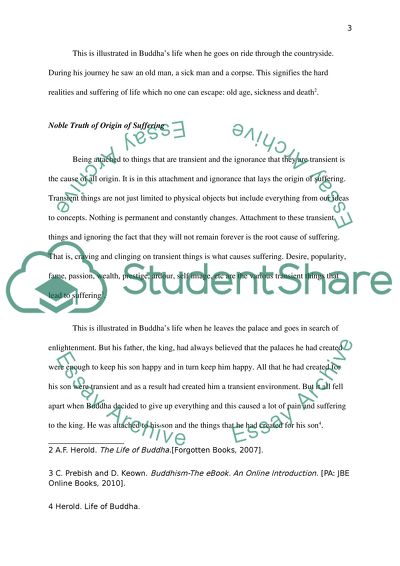The Four Noble Truths and the Life of Siddhartha Gautama Essay. Retrieved from https://studentshare.org/history/1442128-the-four-noble-truths-form-the-basis-of-buddhist
The Four Noble Truths and the Life of Siddhartha Gautama Essay. https://studentshare.org/history/1442128-the-four-noble-truths-form-the-basis-of-buddhist.


